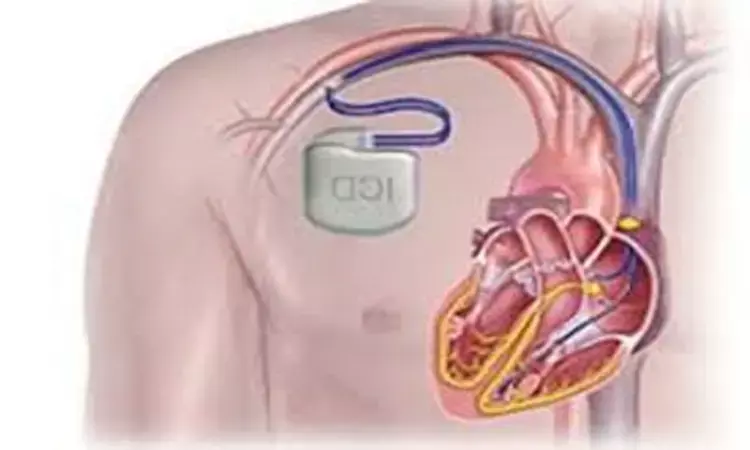- Home
- Medical news & Guidelines
- Anesthesiology
- Cardiology and CTVS
- Critical Care
- Dentistry
- Dermatology
- Diabetes and Endocrinology
- ENT
- Gastroenterology
- Medicine
- Nephrology
- Neurology
- Obstretics-Gynaecology
- Oncology
- Ophthalmology
- Orthopaedics
- Pediatrics-Neonatology
- Psychiatry
- Pulmonology
- Radiology
- Surgery
- Urology
- Laboratory Medicine
- Diet
- Nursing
- Paramedical
- Physiotherapy
- Health news
- Fact Check
- Bone Health Fact Check
- Brain Health Fact Check
- Cancer Related Fact Check
- Child Care Fact Check
- Dental and oral health fact check
- Diabetes and metabolic health fact check
- Diet and Nutrition Fact Check
- Eye and ENT Care Fact Check
- Fitness fact check
- Gut health fact check
- Heart health fact check
- Kidney health fact check
- Medical education fact check
- Men's health fact check
- Respiratory fact check
- Skin and hair care fact check
- Vaccine and Immunization fact check
- Women's health fact check
- AYUSH
- State News
- Andaman and Nicobar Islands
- Andhra Pradesh
- Arunachal Pradesh
- Assam
- Bihar
- Chandigarh
- Chattisgarh
- Dadra and Nagar Haveli
- Daman and Diu
- Delhi
- Goa
- Gujarat
- Haryana
- Himachal Pradesh
- Jammu & Kashmir
- Jharkhand
- Karnataka
- Kerala
- Ladakh
- Lakshadweep
- Madhya Pradesh
- Maharashtra
- Manipur
- Meghalaya
- Mizoram
- Nagaland
- Odisha
- Puducherry
- Punjab
- Rajasthan
- Sikkim
- Tamil Nadu
- Telangana
- Tripura
- Uttar Pradesh
- Uttrakhand
- West Bengal
- Medical Education
- Industry
A reversible male contraceptive, targeted to the testes with magnets

Women have several choices for long-lasting, reversible contraceptives, but most options for men are either single-use, such as condoms, or difficult to reverse, like vasectomies. Now, in a step toward a safe, long-lasting and reversible male contraceptive, researchers reporting in ACS' Nano Letters have developed magnetic, biodegradable nanomaterials that reduced the likelihood of mice fathering pups for at least 30 days.
Elevated temperatures, which can be caused by wearing too-tight pants or underwear, can decrease sperm count in men. Some researchers have explored the more intense heating of nanomaterials injected into the testes as a form of male birth control. However, the injection can be painful, the heating can damage skin, and most nanomaterials tested so far are not biodegradable. Weihua Ding, Fei Sun and colleagues wanted to develop a safe, effective magnetic-thermal approach to male contraception that doesn't need to be injected directly into the testes.
The researchers tested two forms of iron oxide nanoparticles, which are biodegradable and can be guided and heated with magnetic fields, as male contraceptives. One type of nanoparticle was coated with polyethylene glycol (PEG) and the other with citric acid. Although the PEG-coated nanoparticles could be heated to higher temperatures, they were not as easily manipualated by magnets as the other ones.
So the researchers injected repeated doses of citric acid-coated nanoparticles into the bloodstream of mice for 2 days, guided the nanomaterials to the testes with magnets, and then applied an alternating magnetic field to the area for 15 minutes. The nanoparticles heated the testes to a temperature of 104 F, shrinking them and inhibiting spermatogenesis before gradual recovery 30 to 60 days after treatment. The mice couldn't father any pups 7 days after treatment, but they were back to fathering about 12 pups per pregnant female at day 60.
The nanoparticles were non-toxic to cells and were gradually eliminated from the body, offering new possibilities for male contraception, the researchers say.
Dr Kamal Kant Kohli-MBBS, DTCD- a chest specialist with more than 30 years of practice and a flair for writing clinical articles, Dr Kamal Kant Kohli joined Medical Dialogues as a Chief Editor of Medical News. Besides writing articles, as an editor, he proofreads and verifies all the medical content published on Medical Dialogues including those coming from journals, studies,medical conferences,guidelines etc. Email: drkohli@medicaldialogues.in. Contact no. 011-43720751


